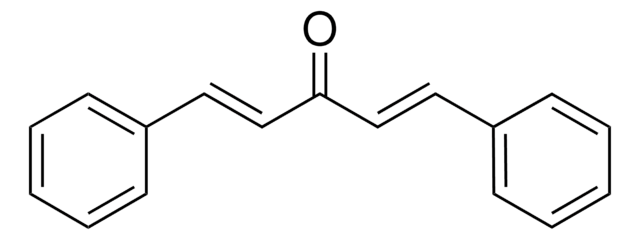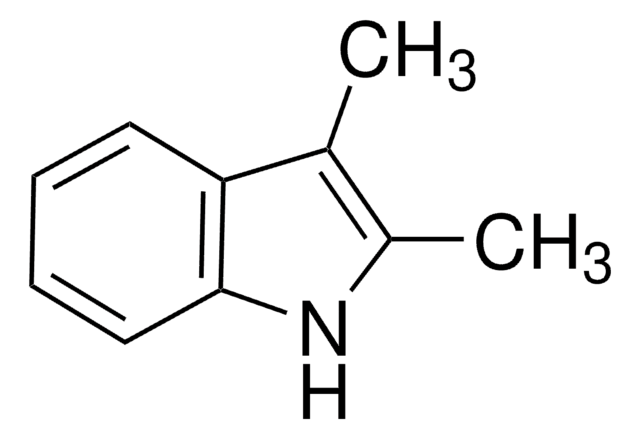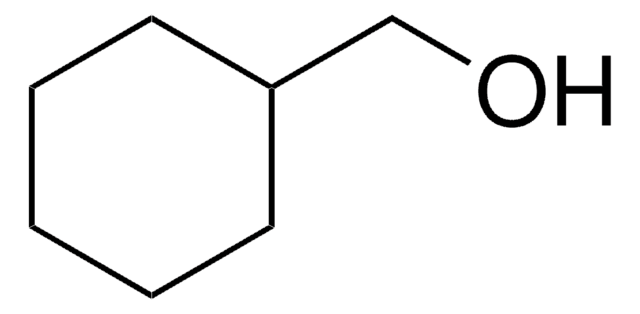B1334
Benzaldehyde
ReagentPlus®, ≥99%
Synonym(s):
Bitter almond
About This Item
Recommended Products
vapor density
3.7 (vs air)
Quality Level
vapor pressure
4 mmHg ( 45 °C)
product line
ReagentPlus®
Assay
≥99%
form
liquid
autoignition temp.
374 °F
expl. lim.
1.4 %, 20 °F
refractive index
n20/D 1.545 (lit.)
pH
5.9 (20 °C)
bp
178-179 °C (lit.)
mp
−26 °C (lit.)
density
1.044 g/cm3 at 20 °C (lit.)
functional group
aldehyde
phenyl
SMILES string
O=Cc1ccccc1
InChI
1S/C7H6O/c8-6-7-4-2-1-3-5-7/h1-6H
InChI key
HUMNYLRZRPPJDN-UHFFFAOYSA-N
Looking for similar products? Visit Product Comparison Guide
General description
Application
- Preparation of optically active 1-phenylpropan-1-ol.
- Synthesis of meso-tetraphenylporphins and chlorins.
- As a test compound to study oxidative amidation reaction of aliphatic primary/secondary amines using N-heterocyclic carbine as a catalyst.
- Synthesis of 2-phenyl-2,3-dihydro-4H-pyran-4-one with high enantioselectivity by hetero-Diels-Alder (HDA) reaction with Danishefsky′s diene.
Quality
Legal Information
Signal Word
Danger
Hazard Statements
Precautionary Statements
Hazard Classifications
Acute Tox. 4 Inhalation - Acute Tox. 4 Oral - Aquatic Chronic 2 - Eye Irrit. 2 - Repr. 1B - Skin Irrit. 2 - STOT SE 3
Target Organs
Respiratory system
Storage Class Code
6.1C - Combustible acute toxic Cat.3 / toxic compounds or compounds which causing chronic effects
WGK
WGK 1
Flash Point(F)
145.4 °F - closed cup
Flash Point(C)
63 °C - closed cup
Personal Protective Equipment
Choose from one of the most recent versions:
Already Own This Product?
Find documentation for the products that you have recently purchased in the Document Library.
Customers Also Viewed
Articles
The aldol condensation reaction is an organic reaction introduced by Charles Wurtz, who first prepared the β-hydroxy aldehyde from acetaldehdye in 1872.
Knoevenagel Condensation is an organic reaction named after Emil Knoevenagel. It is a classic C-C bond formation reaction and a modification of the Aldol Condensation.
Our team of scientists has experience in all areas of research including Life Science, Material Science, Chemical Synthesis, Chromatography, Analytical and many others.
Contact Technical Service









